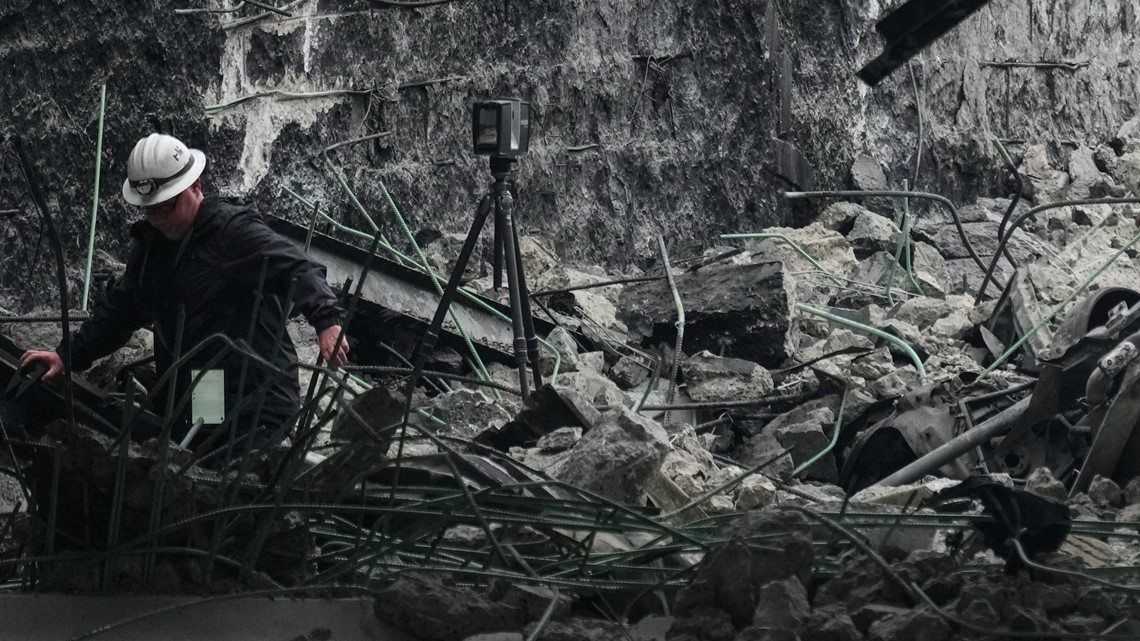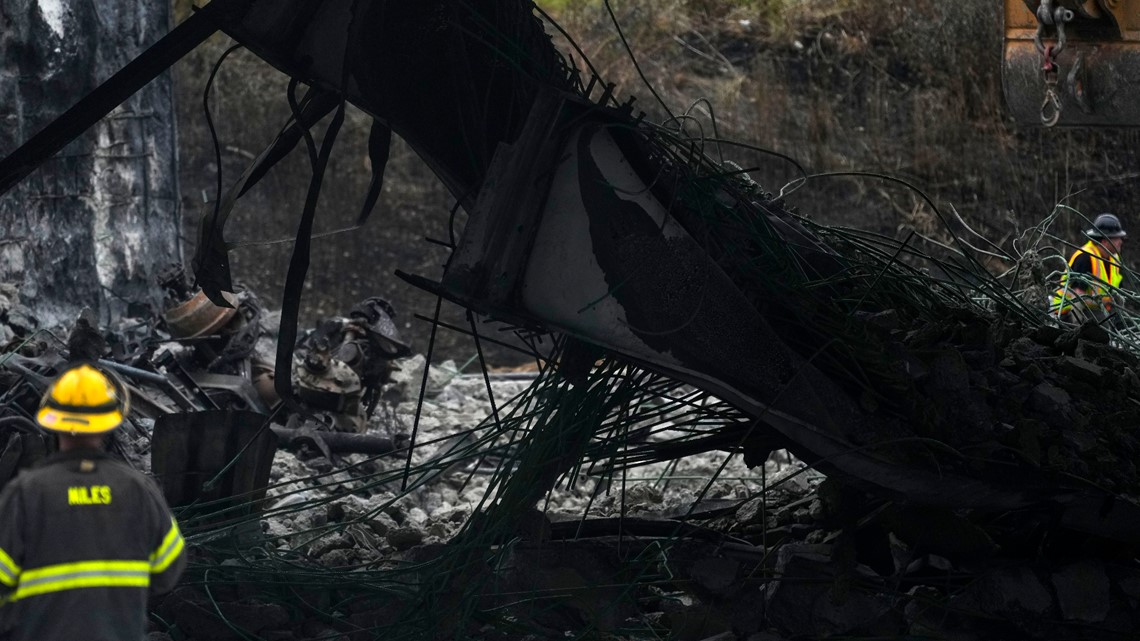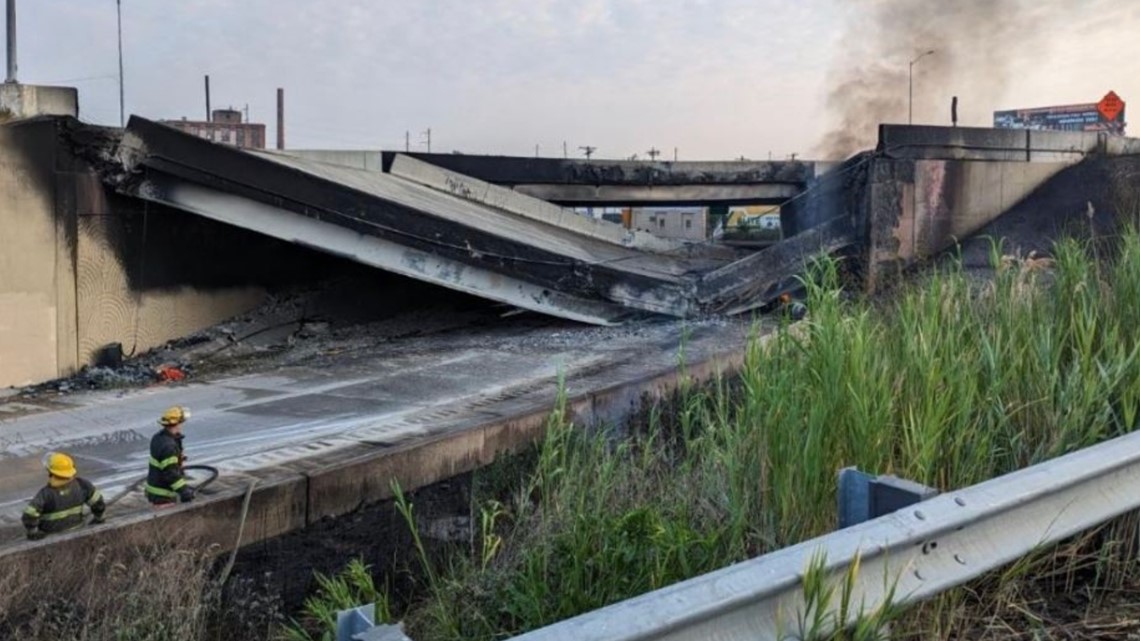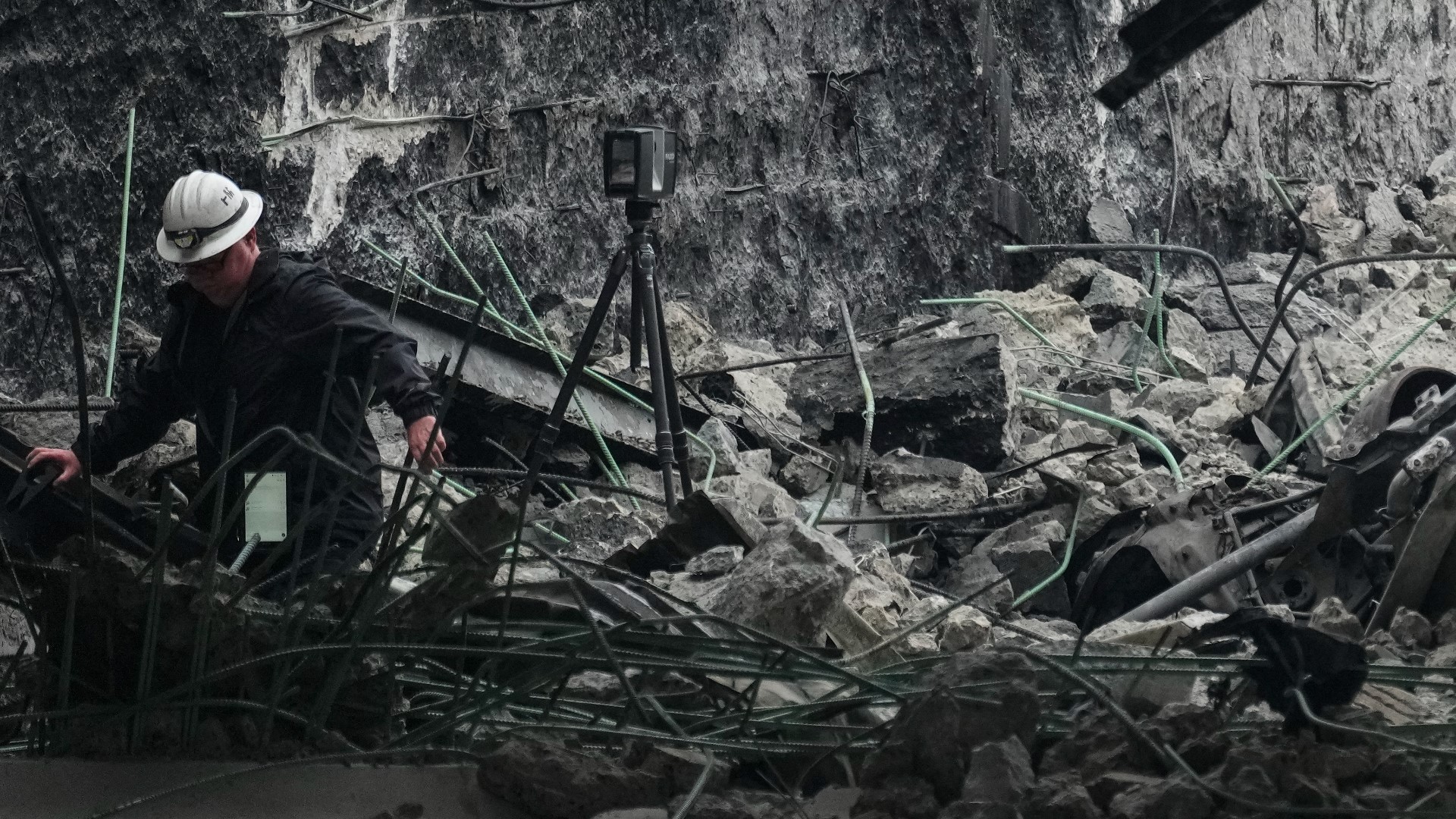PHILADELPHIA — The driver of a tractor-trailer hauling gasoline lost control on an off-ramp and flipped the tanker truck on its side in a wreck that set it afire and destroyed a section of the East Coast’s main north-south highway, Pennsylvania's top transportation official said Monday.
In the first official accounting of a wreck that threw hundreds of thousands of morning commutes into chaos and disrupted untold numbers of businesses, state Transportation Secretary Mike Carroll said the driver was northbound “trying to navigate the curve, lost control of the vehicle, landed on its side and ruptured the tank.”
The driver was feared dead, and a relative of a New Jersey truck driver who has not been heard from since Sunday told The Philadelphia Inquirer that investigators had contacted the family in an effort to identify human remains recovered from the wreckage.
Pennsylvania State Police said a body was turned over to the Philadelphia medical examiner and coroner, but did not identify the remains or respond when asked if they belonged to the driver.


Gov. Josh Shapiro, speaking of those on the roadway and not the trucker, said he “found myself thanking the Lord that no motorists who were on I-95 were injured or died.”
Interstate 95 will be closed in both directions for weeks as the summer travel season kicks into high gear. The elevated southbound portion of I-95 will have to be demolished, as well as the northbound side, Carroll said. Motorists should avoid the northeast corner of the sixth-largest city in the country, transportation officials said.
The accident also disrupted the automotive route from Canada to Florida through the Boston, New York and Washington metropolitan areas, increasing Americans' dependence on air travel and on the interstate rail network.
Videos shared on social media showed a number of close calls around the accident, with people driving through the area as flames licked upward from the fire below.
The National Transportation Safety Board was on the scene Sunday night. Federal investigators have been collecting information about the truck and talking with the company and emergency responders in order to understand the sequence of events. They are expected to make a preliminary report within weeks.
The damaged I-95 segment carries about 160,000 vehicles daily, Carroll said. State police don't know if the driver was speeding, and no other vehicle has been found. Officials said they had been in contact with the trucking company, but they did not identify it.
Carroll said the highway span was 10 to 12 years old, had appeared sound, and officials blamed the damage on the heat of the fire, which took about an hour to control.
Shapiro signed a disaster declaration Monday, saying it gives state agencies the ability to skip normal bidding-and-contracting requirements so the span can be repaired faster.
He said a flight he took over the area showed “just remarkable devastation.”
High heat from the fire or the impact of an explosion could have weakened the steel beams supporting the overpass, according to Drexel University structural engineering Professor Abi Aghayere. Bridges like the one that collapsed don't typically have fire protection, like concrete casing, he added. It could have been coated in a fire-retarding paint, but even then the beams could have been weakened.
“It just gives you time,” he said.
Among many transportation changes across the region, the Southeastern Pennsylvania Transportation Authority said it was operating three extra morning and late afternoon trains on its Trenton, New Jersey, line, and adding capacity to regularly scheduled lines during peak hours following the collapse.


The collapsed section of I-95 was part of a $212 million reconstruction project that wrapped up four years ago, state Transportation Department spokesman Brad Rudolph said. PennDOT rated the 104-foot span as in “good” condition earlier this year, with another inspection set for 2025.
Shapiro, a Democrat, said the complete rebuild of I-95 would take “some number of months,” and in the meantime officials were looking at “interim solutions to reconnect I-95 and get traffic through the area."
Joseph L. Schofer, a retired professor of civil and environmental engineering from Northwestern University, said a big challenge for PennDOT in quickly replacing the bridge could be getting heavy-duty steel beams of a hundred feet or more.


Ensuring the precise length necessary — either by finding the construction records or taking measurements — and finding a fabricator to make them could take time, he said.
“You can’t go online to Amazon and order it and have it delivered the next day,” said Schofer, who also hosts a podcast on infrastructure.
In California, a similar situation happened with a highway ramp in Oakland. It was replaced in 26 days, he said.
“Now that’s almost a miracle,” Schofer said. In Atlanta, an elevated portion of Interstate 85 collapsed in a fire, shutting down the heavily traveled route through the heart of the city in March 2017. It took authorities there 43 days to replace it, Schofer said.
In Pennsylvania, officials were also concerned about the environmental effects of runoff into the nearby Delaware River.
After a sheen was seen in the Delaware River near the collapse site, the Coast Guard deployed a boom to contain the material. Ensign Josh Ledoux said the tanker had a capacity of 8,500 gallons (32,176 liters), but the contents did not appear to be spreading into the environment.
___
Catalini reported from Trenton, New Jersey and Levy from Harrisburg, Pennsylvania.

